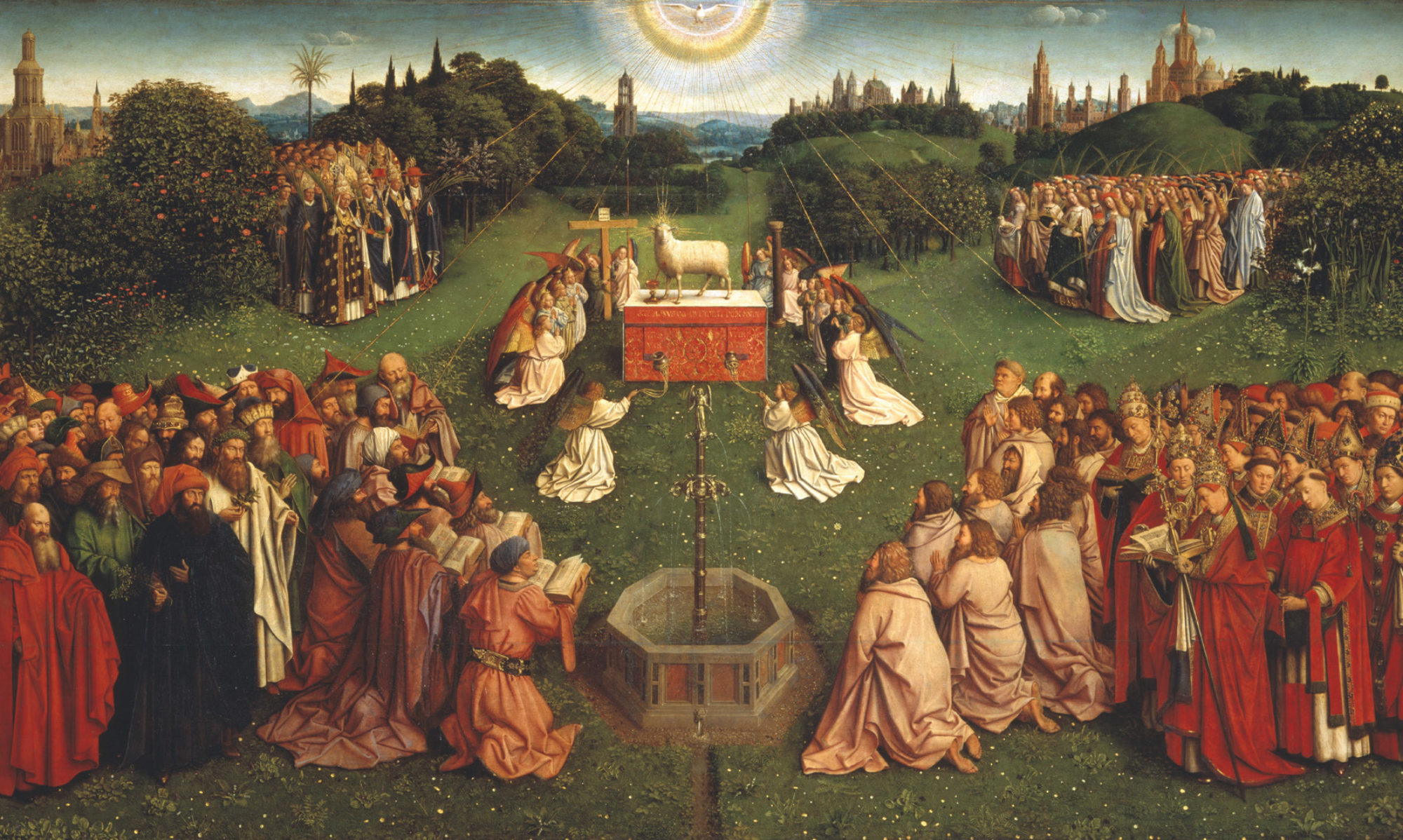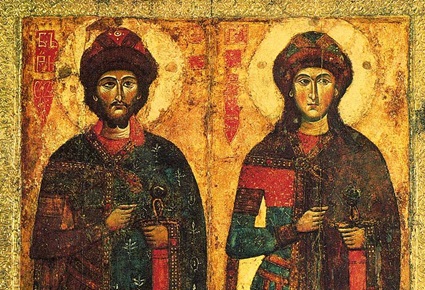Sts. Boris and Gleb were the two younger sons of St. Vladimir of Kiev, the Father of Russian Christianity who brought the Rus into the fold with his baptism in 988. From an early age the boys were trained in Christian virtue and were exceptionally pious, exhibiting both exemplary intelligence and personal holiness. They were both popular with the Russian people.
This popularity aroused the hostility of their elder pagan brother, Svyatopolk the Accursed. Boris happened to be returning from a military campaign when Vladimir died and Svyatopolk took the throne. Knowing his life was in danger, Boris chose to send his retainers and soldiers away rather than make war on Svyatopolk, as his supporters urged him. He withdrew to his tent to pray the Divine Office and was praying the third Psalm, “O Lord, why are they multiplied that afflict me, Many rise up against me…” (Ps. 3:1), when his assassins approached. Informed that his murderers were approaching, Boris turned to an icon of the Saviour and prayed beseechingly: “Lord Jesus Christ, Thou didst accept Thy Passion on account of our sins; grant me also the strength to accept my passion. I receive it not from my enemies but from my brother, Lord, lay not this sin to his charge.”
The assassination was botched, however, and Boris was carried away wounded to Kiev. Svyatopolk, however, had him finished off on route by means of some Varangian mercenaries who intercepted his litter and plunged their lances into his breast.
Gleb, the youngest brother, was also slain. He was summoned to Kiev on a ruse and was ambushed near Smolensk. He seems to have wavered in his resolution, at first begging his assailants to spare his life. But when he witnessed their determination to kill him, he humbly resigned himself. The fatal blow was dealt by Gleb’s own cook who cut his throat, probably wanting to find favor with the party of Svyatopolk. The body was tossed in the brush on the banks of the Smyadyn River.
Five years later, when Yaroslav the Wise, another son of Vladimir, finally succeeded in overthrowing the treacherous Svyatopolk, the bodies of the two princes, discovered to be incorrupt, were laid to rest together in the church of St. Basil in Vyshgorod, Yaroslav’ s residence near Kiev. Their tomb immediately became a place of pilgrimage, and the many miracles which took place before their relics persuaded Church authorities to consent to Yaroslav’s request and canonize the two brother-princes.
It should be noted that Boris and Gleb are not martyrs in the strict sense since they were not killed for the faith. Rather, they are called “Passion-Bearers” since they humbly accepted their suffering in imitation of Christ. Their Feast Days are May 2 and July 24.
Phillip Campbell, “Boris and Gleb, Passion-Bearers,” Unam Sanctam Catholicam. August 10, 2012. Available online at https://unamsanctamcatholicam.com/2024/07/boris-and-gleb-passion-bearers

